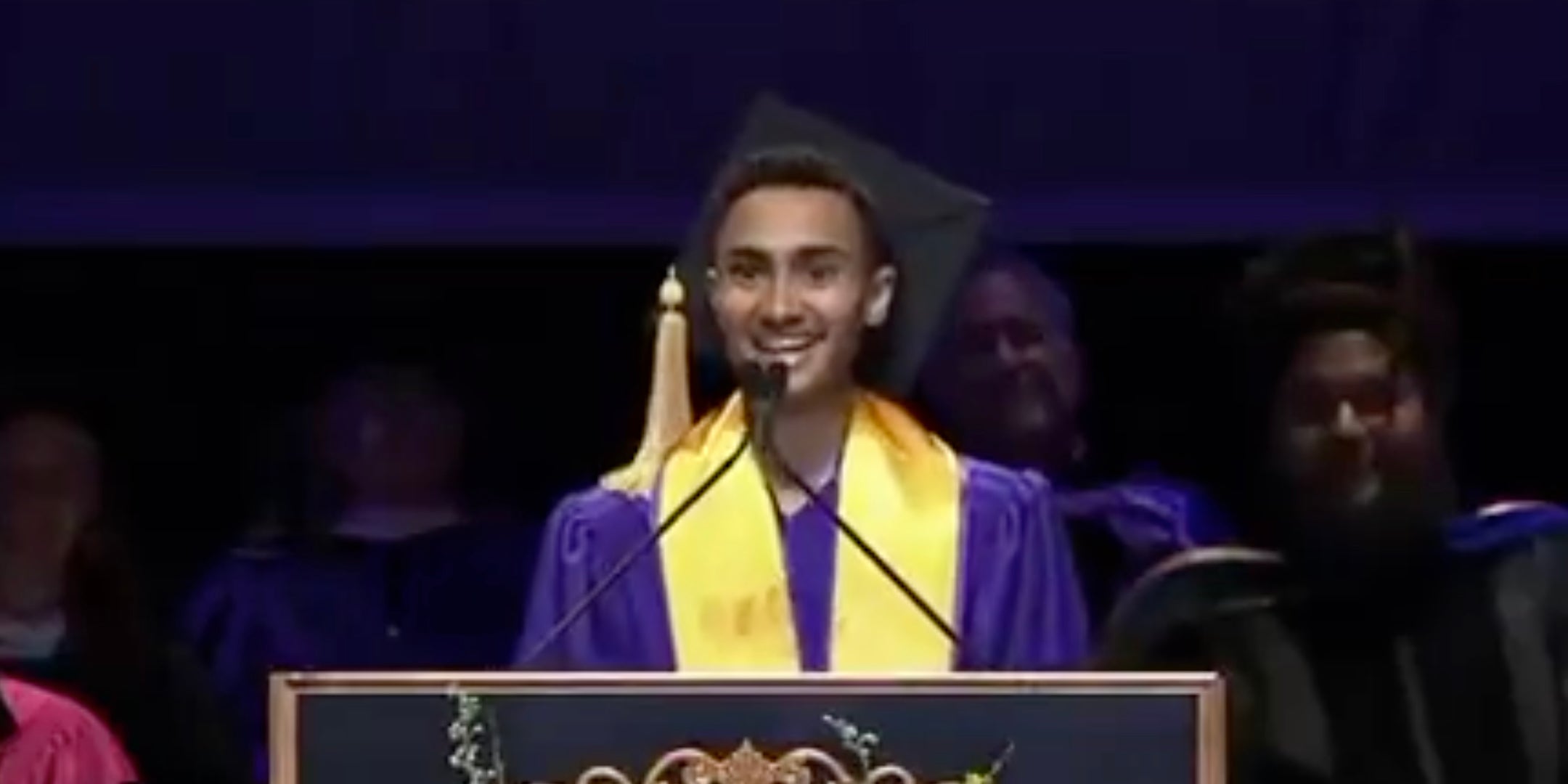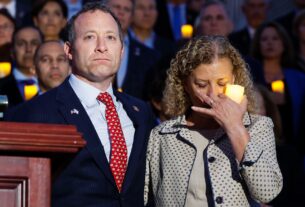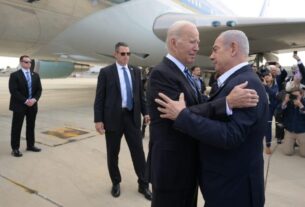New York University is withholding the diploma of a student graduation speaker who used his commencement address to accuse Israel of genocide and decry “the atrocities currently happening in Palestine.”
The episode is the most controversial moment so far of a campus graduation season that has cooled off somewhat compared to last year’s Israel protests. Several commencement ceremonies have seen protests of the Gaza war, though most appear to have passed without incident.
In a speech to the graduating class of the Gallatin School for Individualized Study, a program at NYU that allows students to design their own majors, graduate Logan Rozos spoke for two and a half minutes to loud cheers and a smattering of boos. He said that “a recognition of the atrocities currently happening in Palestine” is “the only thing that is appropriate” to discuss in his speech.
“I just want to say that the genocide currently occurring is supported both politically and militarily by the United States, is paid for by our tax dollars, and has been livestreamed to our phones for the past 18 months,” he said. “I want to say that I condemn this genocide and complicity in this genocide.”
He did not mention Israel and did not say whether he believed NYU itself bore that complicity — a charge that some pro-Palestinian protesters have leveled against their universities.
NYU spokesperson John Beckman said Rozos “lied about the speech he was going to deliver and violated the commitment he made to comply with our rules.” Beckman added in a statement that the student “abused a privilege that was conferred upon him” by using it to “express his personal and one-sided political views.”
NYU apologized to the graduation audience for being “subjected to these remarks” and said it would “pursue disciplinary actions” against Rozos.
The Anti-Defamation League praised the school for its action, calling the speech “appalling” and adding, “We are thankful to the NYU administration for their strong condemnation and their pursuit of disciplinary action.”
Rozos is a Black transgender actor and activist who was listed as a member of the school’s theater troupe and had previously received a 20 Under 20 award from the LGBTQ group GLAAD.
In an acceptance speech Rozos gave in 2019 for an award presented by the faith-based LGBTQ organization Parity, he quoted Rabbi Abraham Joshua Heschel among a number of other religious figures while discussing how he views God: “To be spiritual is to be amazed,” he said, quoting the mid-20th century Jewish theologian and activist.
Across graduations, Rozos’ affair appears to be an exception. After last academic year saw intense student protests that resulted in the disruption or cancellation of several commencement ceremonies, several schools have, under threats of funding cuts and student arrests by the new Trump administration, taken considerable steps to clamp down this year. In other places, small-scale demonstrations have played out without creating widespread disruption.
NYU in particular has imposed measures to curtail student protests, including about the war in Gaza. The school revised its speech policy last year to define slurs against “Zionists” as potentially in violation of its harassment code. In March the school also cancelled a planned talk by the former international president of Doctors Without Borders, in part because the presentation discussed casualties in Gaza, which “could be perceived as antisemitic,” the doctor said NYU told her.
The school’s response to anti-Israel protests — including Rozos’ speech — has drawn criticism. Some NYU graduates wearing keffiyehs walked out during the school president’s address at the main commencement ceremony at Yankee Stadium on Thursday to protest the school’s handling of pro-Palestinian protesters, according to the student newspaper — the second year in a row NYU’s commencement has seen such walkouts.
At least one prominent NYU graduate, the author and art critic Aruna D’Souza, said she was renouncing her two degrees from the school in protest of the school’s revoking of Rozos’s diploma.
“I read the statement before I saw the video of the speech, and imagined that it must have been some radical statement of support for Hamas or something clearly antisemitic,” D’Souza wrote in an open letter to the school’s president she also shared on Instagram. “Instead, it was a brief expression of conscience, no more ‘radical’ than anything most world leaders, including the newly elected Pope, as well as international courts and humanitarian organizations, have said.”
(Pope Leo XIV has called for a ceasefire in Gaza and the release of hostages but has not accused Israel of genocide. His predecessor, Pope Francis, called for the genocide charge — which Israel rejects — to be “carefully investigated.”)
Other commencement ceremonies this year have also been disrupted, on a smaller scale, by student pro-Palestinian protesters, including at Cambridge University in the United Kingdom. The novelist Salman Rushdie, who survived a 2022 attack by an Islamic extremist, withdrew this week from plans to deliver the commencement address at Claremont McKenna College in Los Angeles; the school’s Muslim student association had criticized the selection of Rushdie, in part because they said he was guilty of “minimizing the genocide” in Gaza.
Not all schools have sought to curtail links to the Israel-Gaza war at commencement. Rutgers University, whose own graduation will take place May 22, defended its choice of Ramy Youssef as commencement speaker after a Jewish New Jersey state lawmaker called the comedian and actor, who has publicly advocated for Palestinians, “polarizing.”




